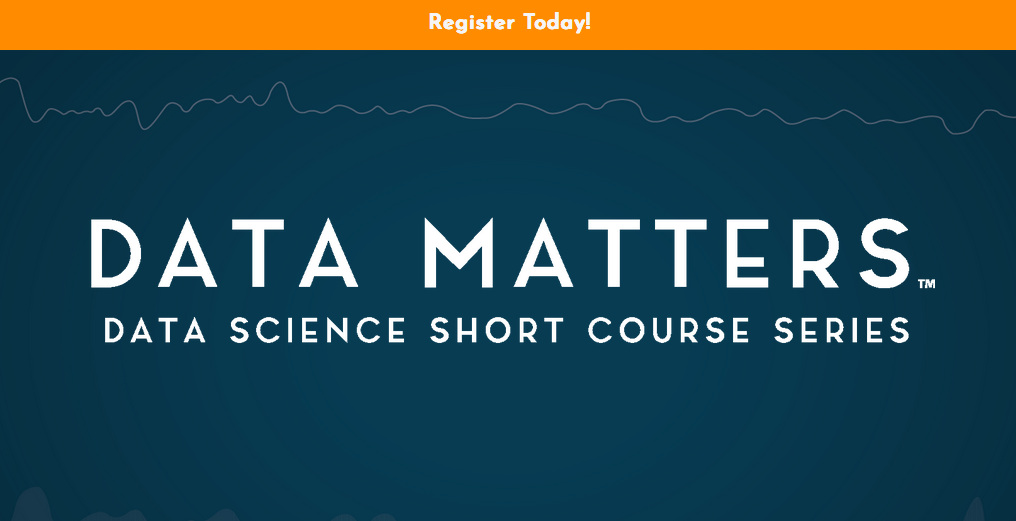
Data Matters short course series returns to Hunt Library

Do you want to know how to use Big Data to further your research, or meet your entrepreneurial goals? Then check out the Data Matters courses coming up this summer.
Held August 13-17 at the Hunt Library, Data Matters is a week-long series of one- and two-day courses aimed at students and professionals in business, research, and government. The short course series is sponsored by the National Consortium for Data Science in collaboration with North Carolina State University, RENCI and the Odum Institute for Research in Social Science at UNC-Chapel Hill.
Data Matters is open to the public; register here: http://datamatters.org/registration/
“Data Matters is an excellent opportunity and affordable option for members of the NC State and greater Triangle community to learn about new computational approaches that can greatly improve their work,” says Chris Erdmann, Chief Strategist for Research Collaboration at the Libraries. “It also provides people in the area with a venue where they can meet others trying to learn about data science.”
Expert instructors from across the country teach courses on topics such as information visualization, data curation, data mining and machine learning, programming in R, system dynamic and agent-based modeling, and more. The Data Matters series is for faculty, staff, students, researchers and others who wish to increase their skills in data analytics and integrate data science methods into their research designs and skillsets. Scholars, analysts, and researchers from all disciplines and industries are welcome.
Courses offered include (full course descriptions):
- Advanced Statistics in R: Generalized Linear Models & Multi-level Modeling
- Introduction to R for Data Science
- Effective Information Visualization
- Introduction to Python
- Text Analysis in R
- Programming in R
- Network Analysis for Data Scientists
- Dynamic/Interactive Visualization
- Working with Messy Data
- Intermediate Programming in R
- Introduction to Data Mining and Machine Learning
- Visualization in Data Science Using R
“R is often considered to be a quantitative analysis tool, but it's also great for text analysis,” says Alison Blaine, Data & Visualization Librarian at the Libraries and ‘Text Analysis in R’ co-instructor. “Using R, you can analyze everything from tweets to entire collections of literary works.”
“The course is an opportunity for participants to learn how to automate the collection of such data from online resources and perform basic text analysis operations which they can then apply in their own work," adds Digital Research and Scholarship Librarian Markus Wust, Blaine’s co-instructor.


